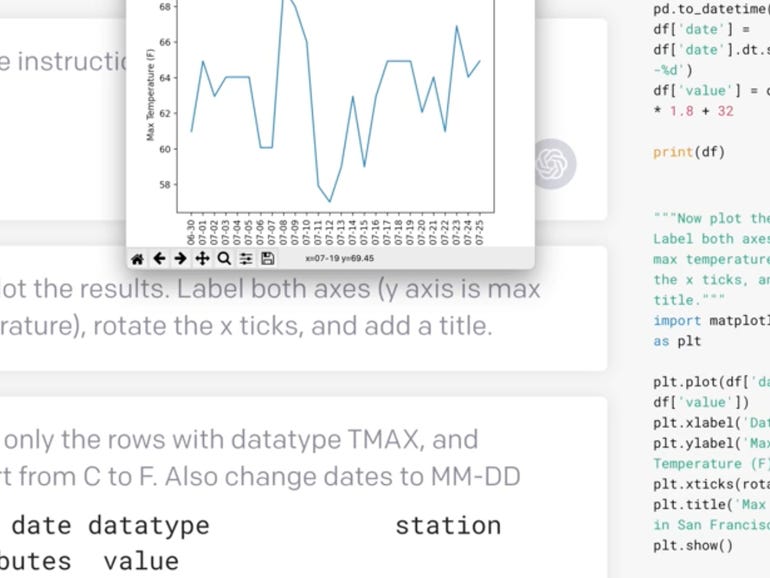OpenAI says ‘Hello, World!’ with private beta for Codex code generation tool | ZDNet
OpenAI, the San Francisco-based artificial intelligence startup that has backing from Microsoft, among others, announced Tuesday it is now offering access to corporaitons to its Codex program for automatically generating code, in a private beta.
“We’re now making OpenAI Codex available in privatebeta via our API, and we are aiming to scale up as quickly as we can safely,” reads a blog post published by OpenAI posted on its Web site.
A button on the blog post links to a wait list form, where you can give your name and email and Github profile name, and details of what you’d like to build.
“During the initial period, OpenAI Codex will be offered for free,” the release states. “OpenAI will continue building on the safety groundwork we laid with GPT-3 — reviewing applications and incrementally scaling them up while working closely with developers tounderstand the effect of our technologies in the world.”
GPT-3 was released to the world in February of 2020, the third version by OpenAI of the “generative pre-trained transformer” language model that can produce whole articles that seem to have a quality of human writing about them, even though they are merely producing probabilty scores of word combinations.
Also: What is GPT-3? Everything your business needs to know about OpenAI’s breakthrough AI language program
Codex is the technology behind Microsoft’s GitHub CoPilot that was introduced in June.
In Tuesday’s announcement, OpenAI offered multiple demonstrations of Codex in action. The program can generate “Hello, World!” code by having a person type into a prompt “print hello world,” whereupon it generates the code of the program. The demo shows a person typing “now with feeling!” wherupon the program produces the “Hello, World!” statement again but adds an extra exclamation point.
The program example expands to numerous extra features, such as “now display five such windows with 10 buttons, all at once,” and code is generated to produce multiple separate windows on screen.
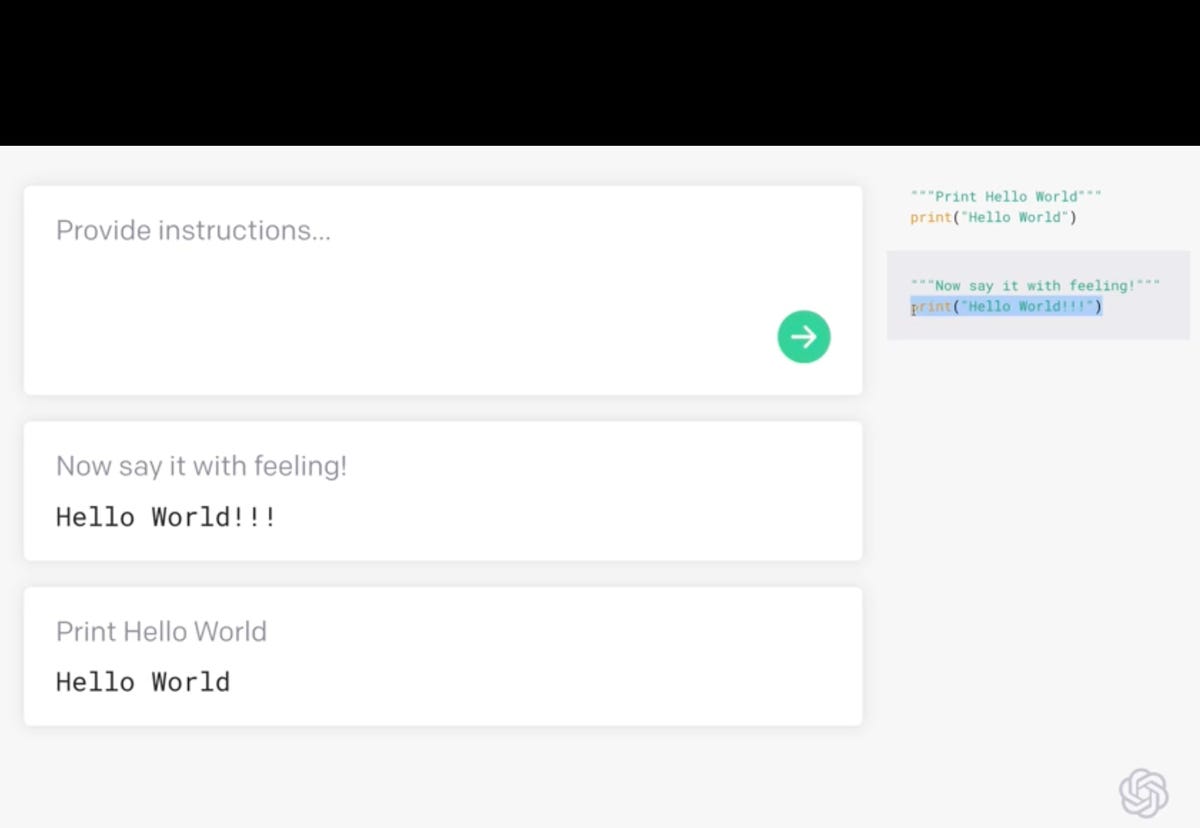
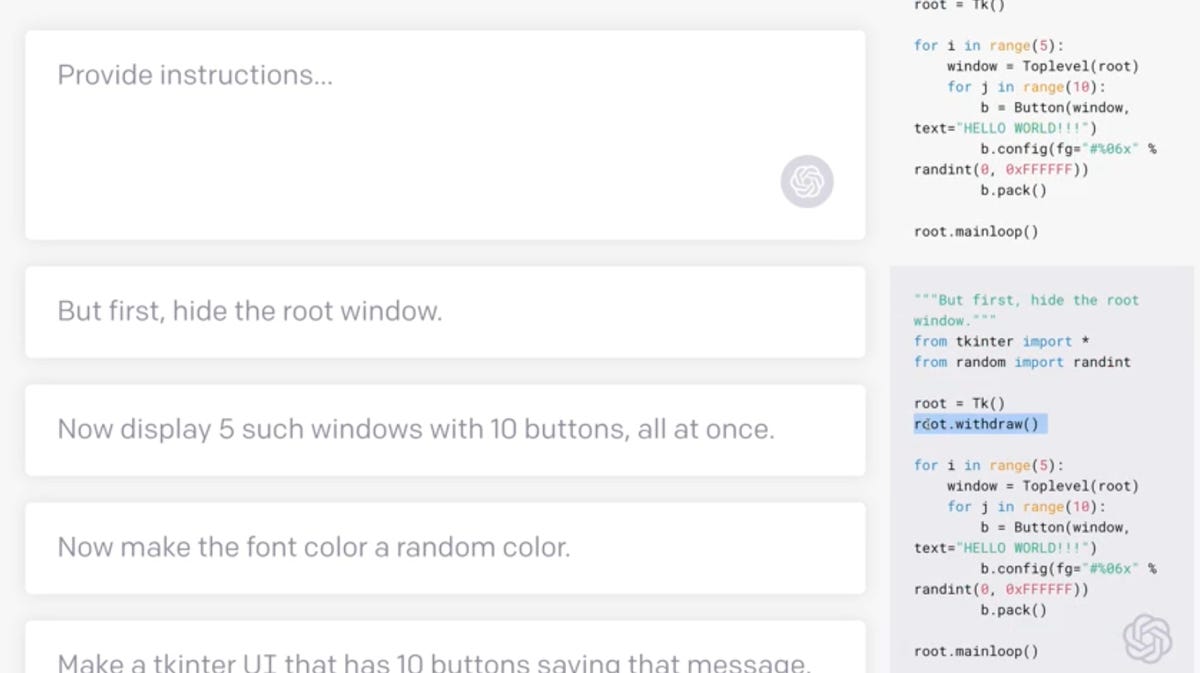
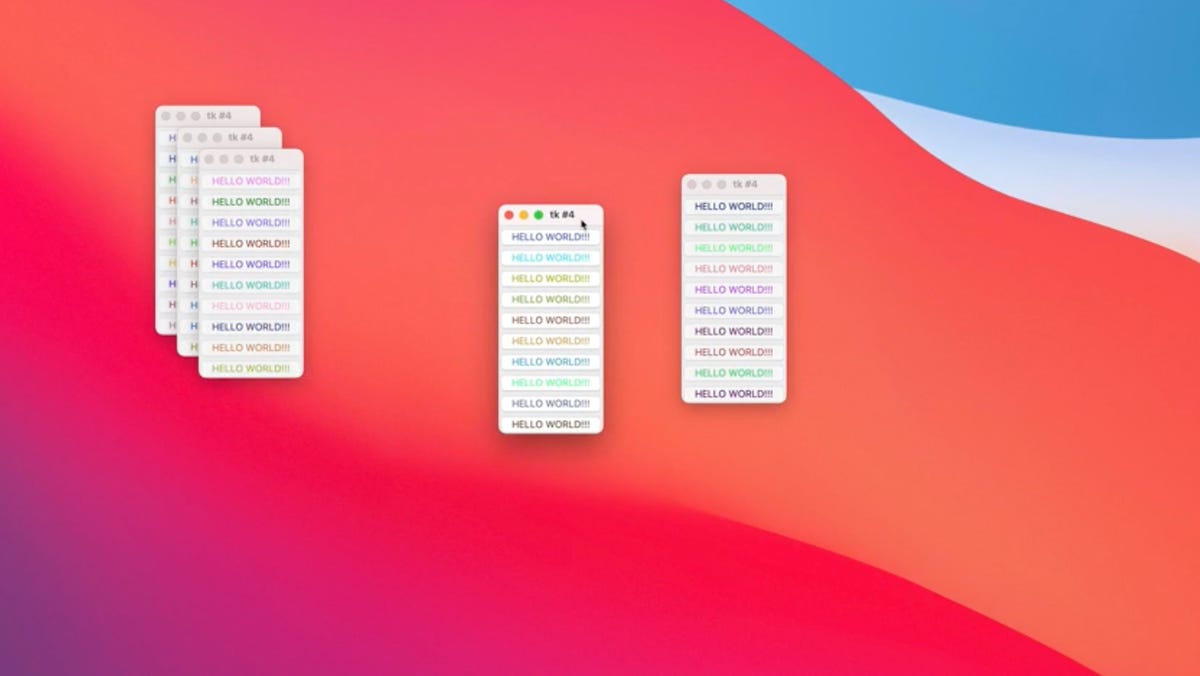
In a more intriguing example for writers, the text of the poem Jabberwocky by Lewis Carroll is re-formatted with a phrase such as “remove indents” typed by a person. Writing “Prepend everything with L the line number than a colon.” Even though “than” is the wrong word, in this case, the program goes on to add line numbering to each line of the poem.
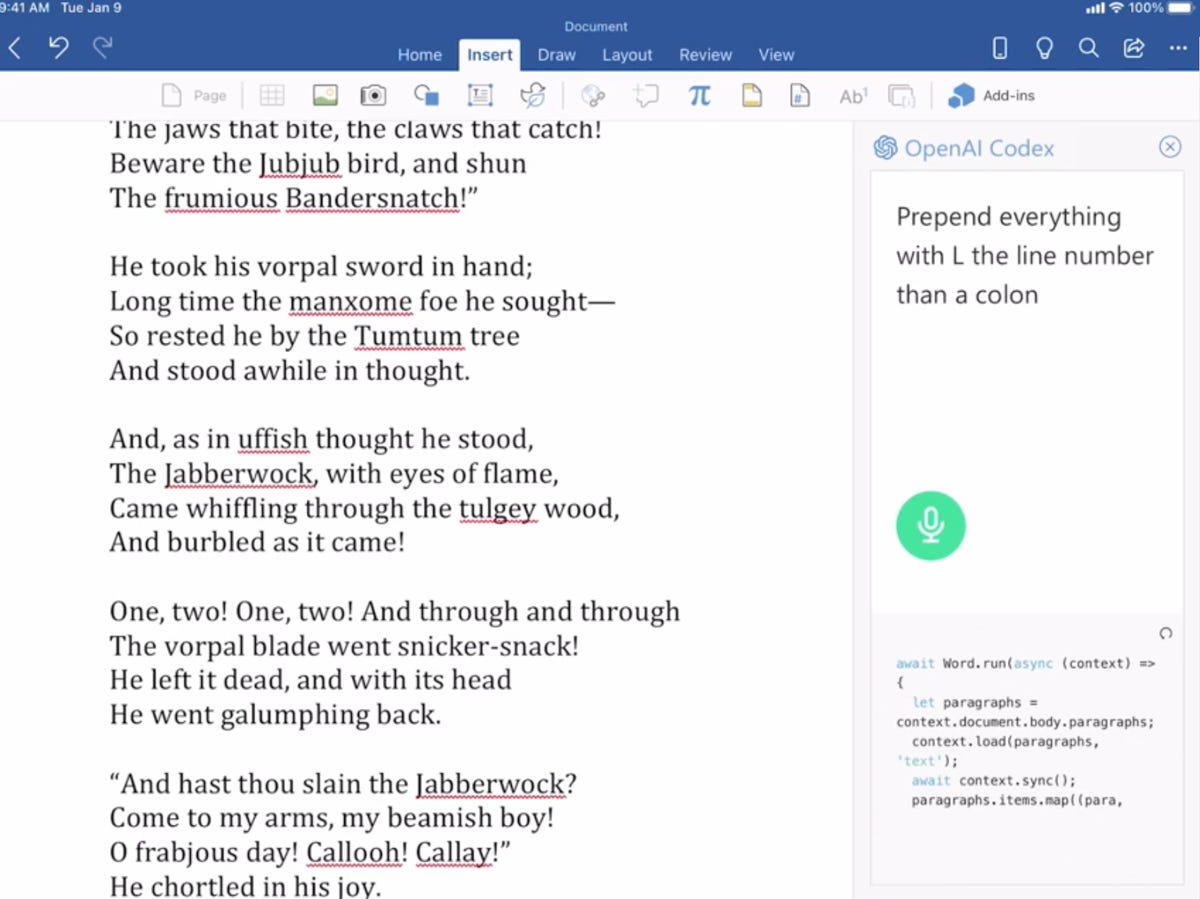
In one demo, the program will write a computer game, a simple imitation of Asteroids, from scratch, by having the progammer write declarative sentences of the kind, “Once the player reaches 250 points, they win! (1) Clear the document, (2) Tell them how long it took in seconds…”
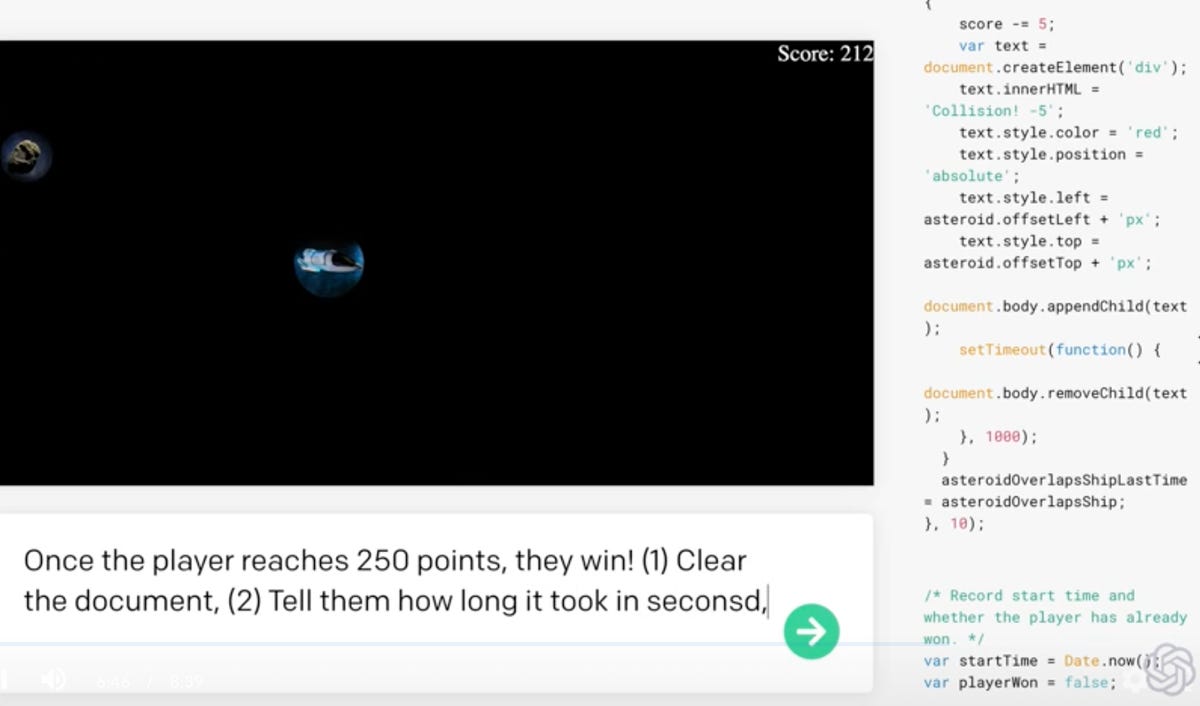
In case you’re interested in digging into the details, the formal paper on Codex was posted on Arxiv last month.
For all the latest Technology News Click Here
For the latest news and updates, follow us on Google News.

